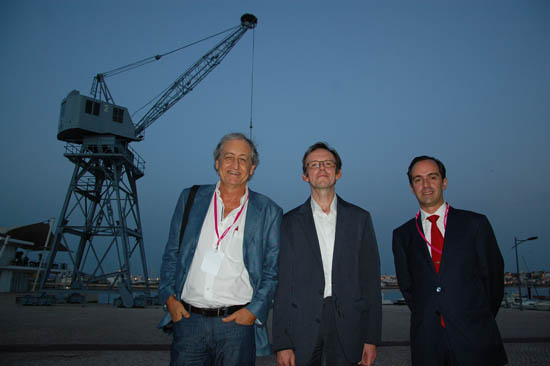 Belgian Wim de Vos, member of the Executive Board of the International Council of Museums (ICOM International) and president of the jury of the European Museum of the Year Award (EMYA), is in Portimão, for the first time, as one of the special guests of the Autumn Meetings of ICOM Portugal, which this year took place at the Portimonense Museum.
Belgian Wim de Vos, member of the Executive Board of the International Council of Museums (ICOM International) and president of the jury of the European Museum of the Year Award (EMYA), is in Portimão, for the first time, as one of the special guests of the Autumn Meetings of ICOM Portugal, which this year took place at the Portimonense Museum.
As one of the most important voices in museology worldwide, Wim de Vos spoke with Sul Informação about the role of museums, the difficulties they face in times of crisis and the much that can be done in the field of heritage.
Sul Informação: What is the new role (or roles) of Museums today and in the future?
Wim from you: Museums are increasingly places where people meet, where they connect with each other and with their cultural heritage. Heritage is no longer presented as something we should look at, but as something that plays a role in our lives and unites us all. It is presented as something that results from what our grandparents, or even many generations before them, did and used, and how this is symbolic of an attitude towards society: we have respect for what they have done, we are looking at it and admiring it. , together, and this can inspire us to, together, create a society based on respect, on collective work.
Museums have to have strong ties with communities, they have to bet on accessibility and inclusion. They have to listen and make the voice of those who don't have it heard, listen to the voices of the people in the community. Museums are crossovers, they are not society's annexes, they are society itself.
Therefore, museums are increasingly an important part in the cogs of building a community, where different communities can come together, can listen to each other, can meet and therefore can develop projects together.
But the basis remains: ancient traditions, ancient objects, ancient art, or even modern art or even contemporary productions, a study of what society created at a given moment.
WHETHER: Many people think that the Museum is just a “house” and it doesn't matter what goes inside. This is a completely different approach…
WV: Of course it takes a building and a good building. In many big cities around the world, it is seen that the museum is a symbolic place, it is a landmark in the landscape, and often the redevelopment of cities after a crisis also starts with museums, with beautiful buildings, symbolic buildings, good for tourism and for city marketing.
But that's not enough. And this is not always necessary. It's nice to have a beautiful building, but you can have a museum without it, without a prestigious building, even though we all like beautiful buildings, like this one in Portimão.
We need a “home”, but we need more. We need to attract people, bring them here, that they feel at home, that this is their home, that this is where we work with their heritage, with what is the heritage of our community, and that they can come here, see this, live this, together.
Wim de Vos: «Museums are one of those factors that cost money when they are built, but bring back more, much more, to the community, in economic value, but also in things that are much harder to measure»
WHETHER: With the crisis, will it be more difficult to create this new type of museum?
WV: Building museums is undoubtedly more difficult with the crisis. In fact, developing all kinds of new activities, if you need the involvement of professionals, is more difficult. And you can't do everything with volunteers. Volunteers are important, but we can't just stop there.
In times of crisis, it is important that Governments invest in Culture. It's good for Tourism, but also for employment and for people to feel proud of their city, their community. It's good for the overall standard of living. Museums are one of those factors that cost money when they are built, but bring back more, much more, to the community, in economic value, but also in things that are much harder to measure. The benefits for society, feeling good in this society, which, in the end, also has an economic value, which is stimulated by the museum.
WHETHER: But Culture, at least in Portugal, has an increasingly low budget. Is it necessary to change the way policy makers think about Culture?
WV: But it also changes what the public thinks about the subject. If you watch television, even on public channels it is not easy to find programs about Culture. That's what we [Museums] have to do: make it known, explain, as Culture knows well when it's proved, we must insist on it. And we try to do that: that people come to the museum and realize how fantastic this is. And then, if the public is won over, automatically policy makers will be more inclined to support Culture and we can then convince them to support Culture as well.
This museum in Portimão shows that, working together with the municipality and the community. It's not just the big international museums, in Glasgow, Liverpool, the MOMA in New York, showing how a museum can be important for a city, for the global level of life in that city.
WHETHER: You are also a member of the jury of the European Museum of the Year Award (EMYA) and therefore know many museums around the world. Still surprised by a museum?
WV: This is my first day in Portimão and I'm surprised. I am surprised that this Museum, which is housed in an old sardine canning factory, is so bright, so welcoming, we feel totally at ease here, in a very welcoming, almost homely atmosphere. It is not so much an industrial archeology museum with many technical explanations, with a lot of noise, in a dark atmosphere. It is a relaxing environment, ideal for a holiday trip. In this sense, it is a masterpiece in the way the building approaches and integrates into the community, through its architecture, its recovery, public policies. I am very happy to be here.
WHETHER: As a member of the EMYA Prize jury, what are you looking for in museums?
WV: We are looking for bright and new ideas. We look for the quality of the building, but also the reception to the public. If we go there with the family or with the children, during the holidays or just for an afternoon, is everything there for us to spend a good afternoon? Is it a museum where you can sit, where you can rest, where you can have a coffee, there or in the neighborhood? All this must be present in a museum.
Of course, the first thing is the Museum's scientific treatment of heritage, how does the Museum approach this cultural heritage, this heritage, not telling lies.
But, more importantly, we look at how it is presented, how heritage is worked, how it is done creating a welcoming and quality atmosphere, how they do it working with and connecting the community. This is the core business of our activity. And if we see brilliant ideas that we've never seen anywhere, then of course we're seduced by it.
WHETHER: In Portugal, there are many museums, small and large, and, despite the crisis, the Municipalities are still interested in investing in this area. Here we had the mayor of Monchique, who spoke of his interest in creating a network of small museum units in his municipality. Do you think these moves are important?
Wim de Vos: «It is also important that the people of the land feel proud of their own cultural heritage, their heritage, what was done here in ancient times»
WV: The Algarve is a tourist area, but tourists need to have somewhere to go and something to visit, especially when it rains or when it's too hot outside.
It is also important that the people of the land feel proud of their own cultural heritage, their heritage, what was done here in ancient times, staying in touch with broader currents of civilization. We feel less isolated when we look at art or artefacts that also exist in other parts of Portugal, on the Iberian Peninsula or across Europe.
There are examples of museums that are purpose-built so that people in that community are proud of the city where they live and its heritage, want to defend it and stop leaving their land.
Museums, heritage sites must be built. People often say that we need to build a new narrative, a new history for Europe, so that it remains a land of peace and prosperity. Heritage must play an important role in this. Because we have a very rich heritage in Europe and we should be proud of it, value it and show that this is what we are: Europeans!
Photos: Wim de Vos, center, flanked by José Gameiro, scientific director of the Portimão Museum, and José Alberto Ribeiro, president of ICOM Portugal
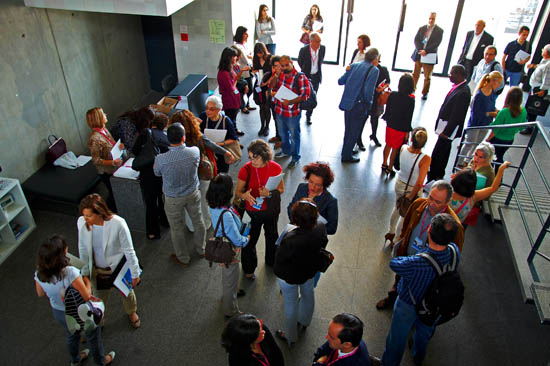
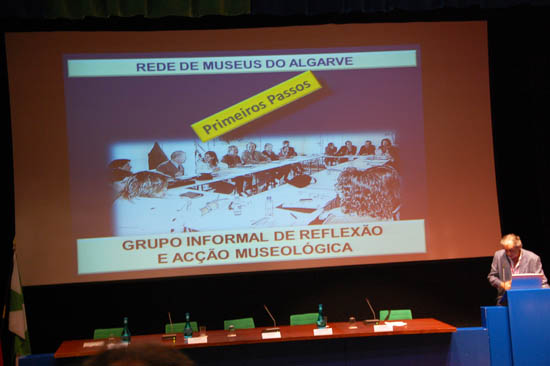
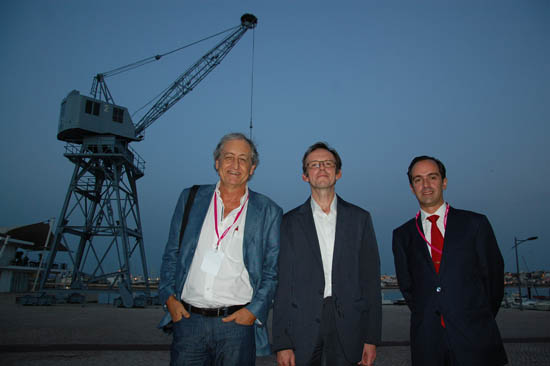
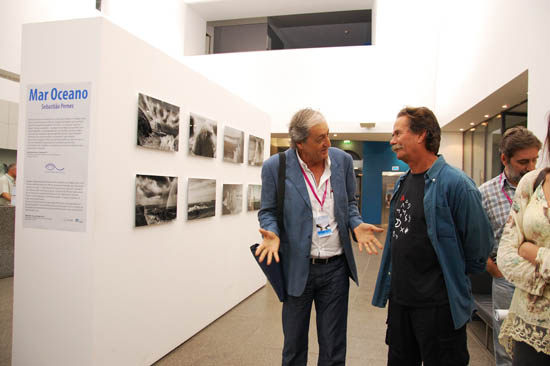
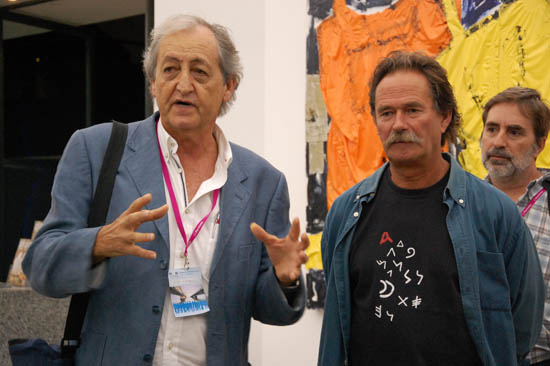
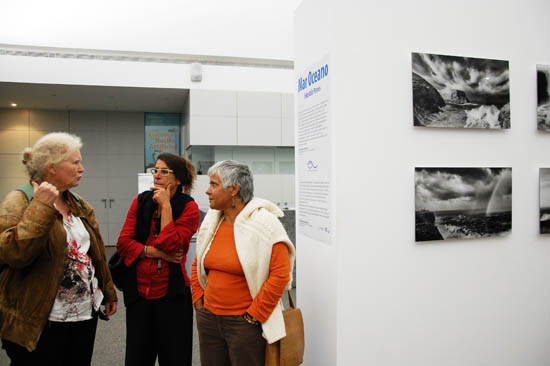
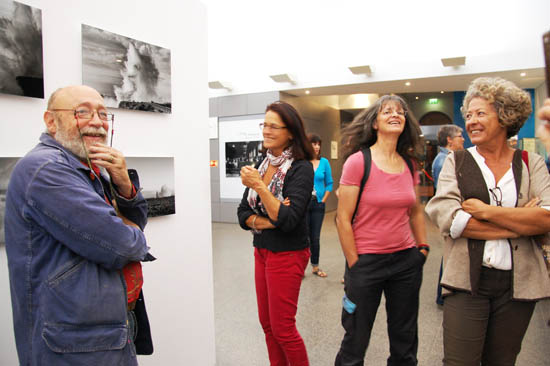
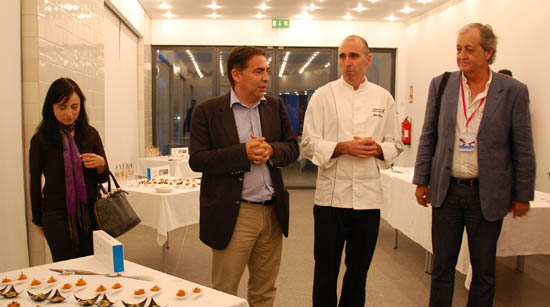
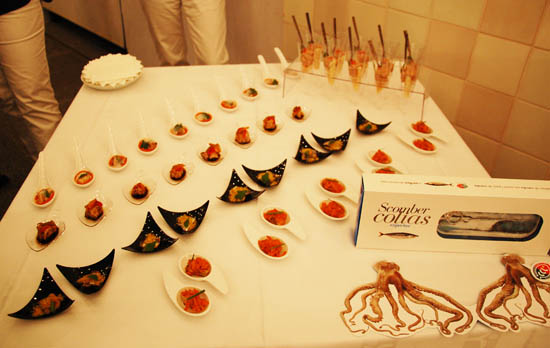


















Comments